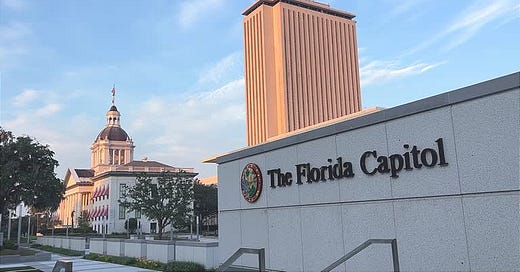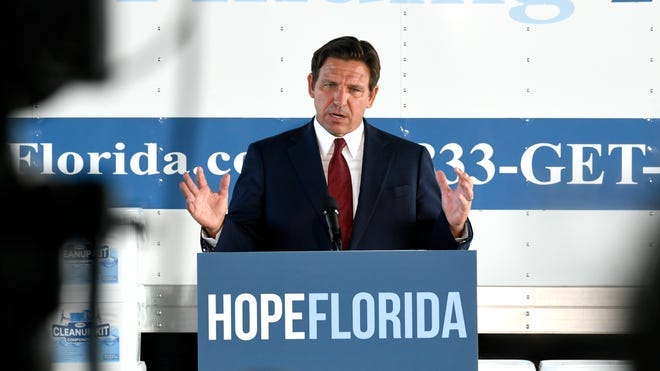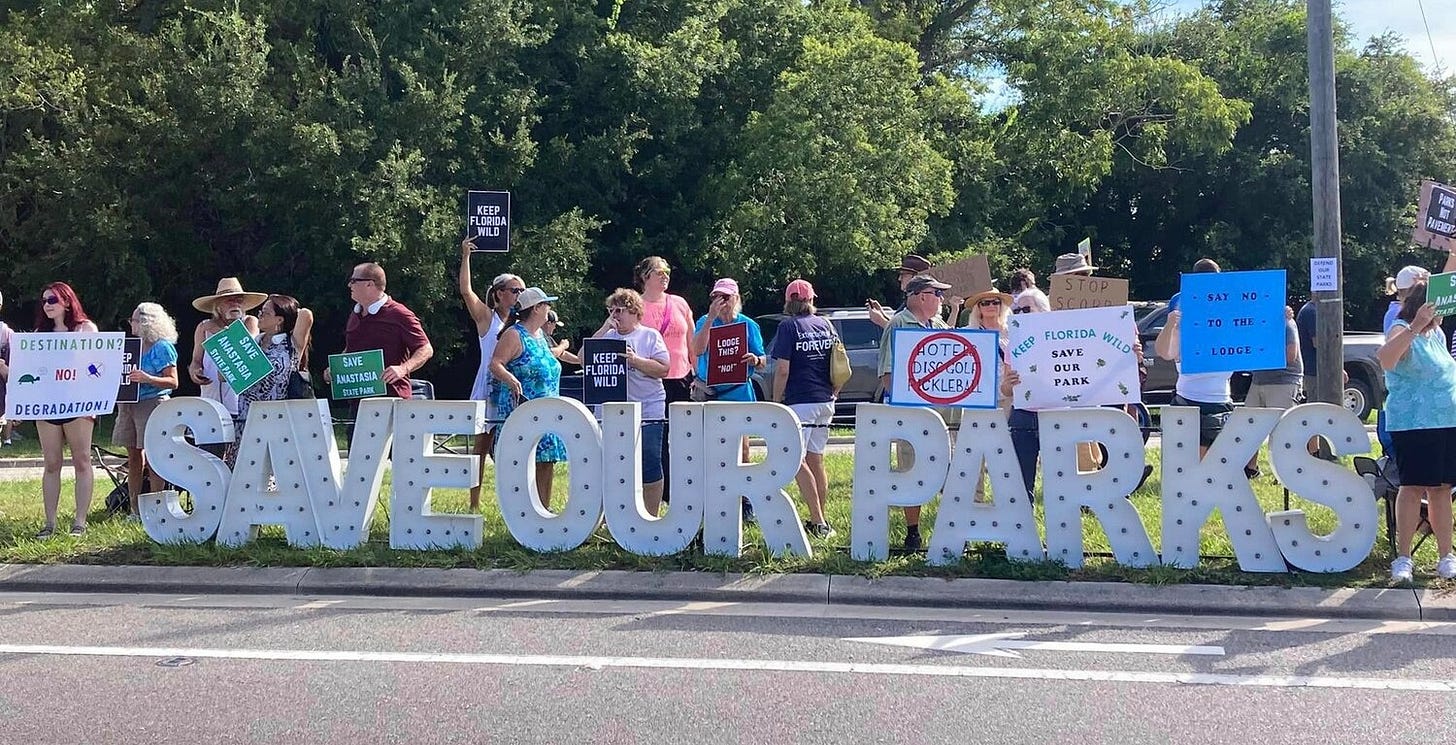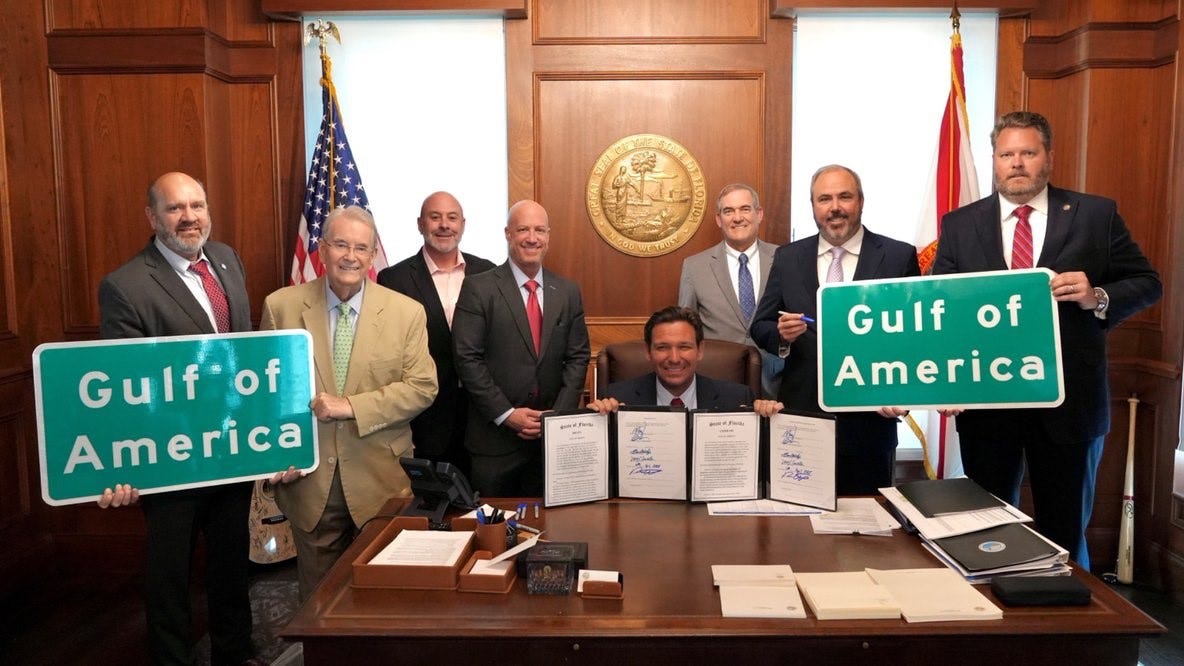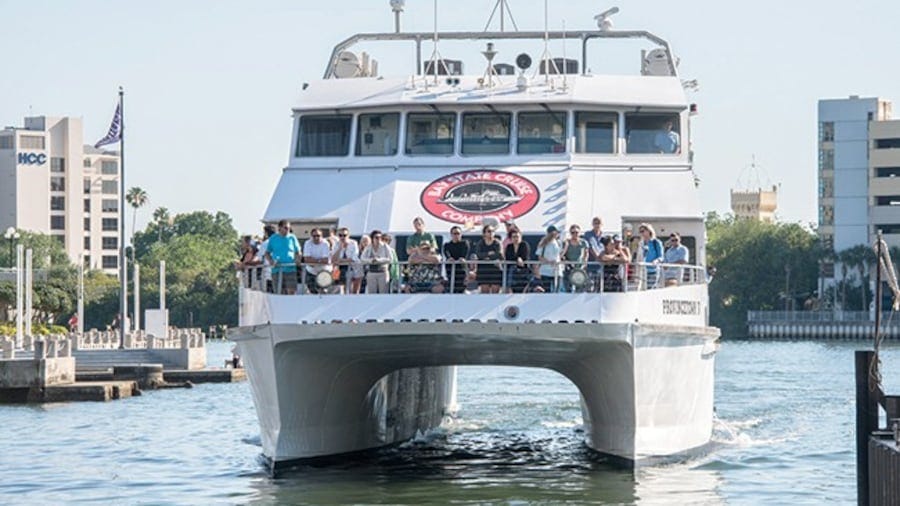Florida House and Senate Clash Over Budgets, Tax Cut Proposals as School Districts Brace for Major Shortfall
April 17, 2025 - This Week's News from Central Florida
Welcome to this week’s edition of the Central Florida Times, an independent, reader-supported newsletter focusing on the Sunshine State. These are the most important stories you need to know from across Central Florida. To never miss an update, subscribe here:
Here’s the latest from Central Florida…
Florida House and Senate Clash Over Budgets, Tax Cut Proposals
The Florida House and Senate are entering the final stretch of session with budget proposals differing by over $4 billion, setting the stage for contentious negotiations to reconcile their plans before the legislative session ends on May 2. The House proposes a $112.95 billion budget, while the Senate’s version totals $117.36 billion, with both chambers prioritizing tax relief but differing on specifics.
House Proposal: The House plan includes a $5.4 billion tax package, featuring a state sales tax rate reduction from 6% to 5.25%. It also proposes a 0.75% cut to business rent taxes and lowering the sales tax rate on electricity to 3.6%. Also included is lowering taxes on purchases of new mobile homes from 3% to 2.25% and, interestingly, decreasing the percentage charged on coin-operated games, like pinball, to 3.25%. Speaker Daniel Perez (R-Miami) emphasized permanent tax cuts as a key goal.
Senate Proposal: The Senate favors a more modest approach, targeting measures such as a permanent elimination of the sales tax on clothes and shoes under $75 and holding multiple sales tax holidays for school supplies, disaster preparedness, and recreational items. It also includes a one-time reduction in yearly vehicle registration charges and an added three years to the current pause on local taxes applied to cell phones and cable TV. In defending the $1.83 billion tax package, Senate President Ben Albritton (R-Wauchula) advocates caution, backing one-time cuts to avoid future fiscal challenges that could require tax increases in coming years.
Legislative leaders are optimistic about reaching a middle ground between the two spending proposals for the 2026 state budget by the close of the session. Meanwhile, Governor Ron DeSantis has criticized the plan by House lawmakers for not providing adequate relief to working-class Floridians. The lower chamber approved the budget recommendation in a 98-6 vote. DeSantis has publicly championed a one-time $1,000 property tax rebate for homesteaded properties, costing Florida about $5 billion. He has also pushed for a 2026 ballot measure to eliminate or reduce property taxes. However, lawmakers remain divided on whether to prioritize property tax relief or sales tax reductions. The Senate's plan would ask the legislature's economic and population research division to examine the impacts of cutting or eliminating property taxes for homesteaded properties. Both chambers agree on some funding priorities, such as allocating $80 million for Visit Florida, but are opposed on issues like Everglades restoration funding and support for the beleaguered citrus industry. The 2026 state budget takes effect at the start of the fiscal year on July 1.
School Districts Brace for Major Cuts Amid Tighter State Budget
Florida’s school districts are preparing for significant budget reductions as lawmakers signal a leaner fiscal year ahead. District leaders point to rising operational costs, declining enrollment, and the end of federal COVID-19 relief funds as key pressures. Many districts will see a funding shortfall that could amount to tens of millions of dollars lost as student populations in public schools shrink and inflation remains steady. This comes amid rising costs for employee healthcare, pensions, and insurance. Lawmakers are promoting record education spending in this year’s proposals, but critics note much of the $800 million in new funding is earmarked for school vouchers, not public schools. Districts are weighing cuts to teaching and administrative positions, reductions in programs, and contract eliminations. In Pinellas County, about 400 teaching roles and 35 administrative jobs could be phased out, largely through attrition and unfilled vacancies. Another major concern is the proposed halving of state funding for advanced and career-focused high school courses, such as Advanced Placement, International Baccalaureate, and dual enrollment. District leaders argue these cuts will limit student opportunities and undermine college and career readiness. Following Florida's 2023 expansion of school choice, which eliminated household income restrictions and enrollment caps, there has been a notable increase in families utilizing school vouchers and homeschooling, leading to a reduction in funding for local public schools. School leaders are now urging lawmakers to reconsider proposed budget cuts that could negatively affect students and communities across the state, as the House and Senate finalize budget negotiations.
Lawmakers Advance Condo Reform Bills to Ease Financial Burdens for Owners
Florida lawmakers are taking steps to alleviate the condo cost crisis with bipartisan legislation aimed at easing the financial burden on condominium owners facing steep fee increases. The proposed laws, SB 1742 and HB 913, passed unanimously in their respective committees and are designed to adjust regulations passed after the 2021 Surfside condo collapse regulations. The deadly event triggered stricter inspection and funding requirements for older buildings. This has created widespread concerns among condominium owners that post-Surfside mandates have made condo living financially unsustainable, with many residents facing rising HOA fees and even six-figure special assessments. Sen. Jennifer Bradley (R-Fleming Island) is sponsoring SB 1742, which cleared a Senate committee unanimously on Tuesday. Its House counterpart, HB 913, also passed a panel with full support. “What I will fight for is to make sure that condo owners see a safe future in their homes at a cost they can afford,” Bradley said. Her proposal allows associations to pause reserve funding for two years post-inspection and invest reserves to reduce owner costs. Gov. DeSantis praised the Senate’s focus on “transparency and accountability” but criticized the House’s initial version for adding burdens, though recent amendments removed contentious provisions like insurance coverage bans for noncompliant buildings. The House’s revised bill now permits associations to use lines of credit for reserves. If signed into law, the changes seek to prevent displacing seniors and retirees on fixed incomes from their condo units because of unaffordable fee assessments brought by stiff inspection and reserve requirements. Amid lawmakers’ efforts to address concerns, tensions remain over balancing safety mandates with financial relief as the legislative session nears its end. The Senate bill heads to its final committee, while the House version advances to the floor.
DeSantis Dismisses Legislative Scrutiny of Hope Florida as “Total Flop”
Gov. Ron DeSantis is defending First Lady Casey DeSantis’ Hope Florida initiative while dismissing a House investigation into its funding as politically motivated and unproductive. Speaking publicly earlier this week, DeSantis labeled a recent subcommittee meeting examining the program as a “total flop” and described the probe as a “manufactured fraud” targeting a successful initiative led by the First Lady. The House Health Care Budget Subcommittee is leading an effort to examine how a $10 million Medicaid settlement made its way to Hope Florida and then to a political committee led by Attorney General James Uthmeier, which opposed a recreational marijuana legalization initiative. DeSantis, however, defended the program’s outcomes, stating, “Hope Florida has changed lives for the better.” He also continued his feud with GOP House leaders, accusing them of working with “Democrats and the liberal media” to discredit himself and the First Lady. “They are stabbing you in the back,” DeSantis said. Subcommittee Chair Rep. Alex Andrade (R-Pensacola) says the investigation into the Hope Florida Foundation will continue. He’s considering issuing subpoenas and appointing a Special Master to dig deeper into communications between the organization and the Governor’s Office.
Hope Florida Chair Admits to Oversights, Vows Fixes
The chair of the Hope Florida Foundation acknowledged Tuesday that the organization failed to follow key financial and transparency rules. “Mistakes were made,” Josh Hay told a Florida House panel investigating how state-linked funds were handled. Hay, testifying under oath, said the foundation lacked sufficient staffing and failed to meet open meetings requirements and internal grant approval procedures. He further acknowledged failing to file certain tax forms and “lapses in reporting procedures” regarding the organization’s finances and transparency. The House inquiry stems from a $67 million settlement between Florida’s largest Medicaid operator and the state Agency for Health Care Administration, in which $10 million was routed to the DeSantis-linked Hope Florida Foundation. The transfer was part of an agreement with the state and was later used to fund political efforts opposing recreational marijuana legalization. Health Care Budget Subcommittee Chair Rep. Alex Andrade (R-Pensacola) questioned Hay about the spending, suggesting grant recipients had not delivered as promised. Hay stated the board would meet on Thursday to correct those issues and pledged better oversight moving forward.
Florida House Passes Legislation Protecting State Parks from Development
House lawmakers have unanimously approved a bill to shield state parks from developments like pickleball courts, golf courses, and lodging facilities. The move comes after widespread backlash to a Florida Department of Environmental Protection (DEP) proposal in August 2024 that included such amenities in nine state parks. That plan was later scrapped by Gov. Ron DeSantis, who said it was unapproved by him and was “going back to the drawing board.” House Bill 209 aims to permanently protect parks by prohibiting any development that could damage “natural resources, native habitats, or archeological or historical sites.” Environmental groups praised the bill’s strong protections, which exceed those in the Senate version, SB 80. Senate sponsor Gayle Harrell (R-Stuart) has signaled her willingness to align her bill with provisions included in the House version as it heads to its final committee. State officials backing the plan said it would “enhance public access” and boost the “outdoor recreation economy,” but opponents argued it would threaten natural habitats and disrupt sensitive ecosystems.
House Lawmakers Defy DeSantis, Pass Bill Limiting Governor’s Role in University President Selections
The Florida House has passed a sweeping “transparency” bill reshaping how state university and college presidents are selected, defying a veto threat from Gov. Ron DeSantis. The legislation, HB 1321, would restrict political influence in presidential searches and would repeal a 2022 law that kept most candidate names secret during the recruitment process. The bill, which received bipartisan support, bars the governor and other officials from discussing anticipated vacancies with higher education leadership. DeSantis slammed the measure, warning it would “pave the way for the 'rewokification' of Florida's higher education system.” He vowed to veto the bill if it reaches his desk. Supporters say the bill restores public trust by making the selection process open and accountable. Rep. Michelle Salzman (R-Pensacola), who sponsored the bill, emphasized it was “about transparency in government,” not a challenge to DeSantis. The measure also imposes term limits and financial disclosure rules on members of the State University System Board of Governors, State Board of Education, and university boards of trustees, and requires board members to be Florida residents or graduates of a state institution. A narrower Senate version, SB 1726, preserves the public records exemption and does not limit gubernatorial advocacy. DeSantis predicted that version will ultimately prevail.
Florida Officially Renames Gulf of Mexico to 'Gulf of America' in State Law
Gov. Ron DeSantis has signed two new bills officially changing the name of the Gulf of Mexico to the “Gulf of America” in Florida, following a directive by former President Donald Trump. The first bill (HB 575) amends dozens of existing Florida laws to reflect the new name. The second (HB 549) requires state agencies to revise geographic documents and ensure that any instructional materials adopted after July 1 use the updated term. Sen. Joe Gruters (R-Sarasota), who backed the education-focused bill, said the move ensures Florida schools reflect “American greatness.” Sen. Nick DiCeglie (R-Indian Rocks Beach), another sponsor of the legislation, called the change a celebration of “American exceptionalism.” With the new laws, Florida becomes the first state in the nation to legally adopt the name “Gulf of America.”
Orlando Mayor Agrees to Comply with Immigration Law After State Pressure
Orlando Mayor Buddy Dyer said Tuesday the city will follow state and federal immigration laws, following threats of removal from office by Florida Attorney General James Uthmeier. The Attorney General previously accused Dyer of defying a 2019 state law banning sanctuary policies after Orlando passed the Trust Act in 2018, which forbids city staff, including law enforcement, from asking about residents’ immigration status. That city policy was adopted to eliminate fears that residents would not report crimes due to deportation concerns. Uthmeier labeled the policy unlawful under the state’s 2019 law and warned the mayor of possible legal action and removal if the city failed to comply with immigration enforcement efforts. In a recent letter sent to Uthmeier, Dyer confirmed that he and the Orlando Police Department “have no intention of violating federal or state law.” He added that officers are currently training with ICE to support enforcement actions and highlighted the new Memorandum of Agreement with federal immigration officials. Uthmeier responded on X, saying he was glad Dyer was “reversing course.”
Hillsborough Commissioners Vote to End Cross Bay Ferry Service
Hillsborough County commissioners voted Wednesday to end Cross Bay Ferry operations several months early due to a contract conflict with operator HMS Ferries. The service was set to run year-round for the first time, but that plan fell apart when HMS proposed using a slower vessel for upcoming routes. The new ferry would double the travel time between Tampa and St. Petersburg, taking two hours per trip — a change local officials across the region rejected. Hillsborough gave HMS until April 3 to find a vessel meeting speed requirements, but the company responded that it couldn’t and agreed to an early termination of the contract, effective April 30. The ferry set a ridership record last year, drawing over 72,000 passengers. Looking ahead, the Pinellas Suncoast Transit Authority (PSTA) is exploring launching its own ferry service by October and may seek funding help from Hillsborough through an unused federal grant.
Thanks for reading this edition of the Central Florida Times. To never miss an update, subscribe for free:
In the meantime, if you learned something or found this read interesting, please consider sharing it to grow our community!


